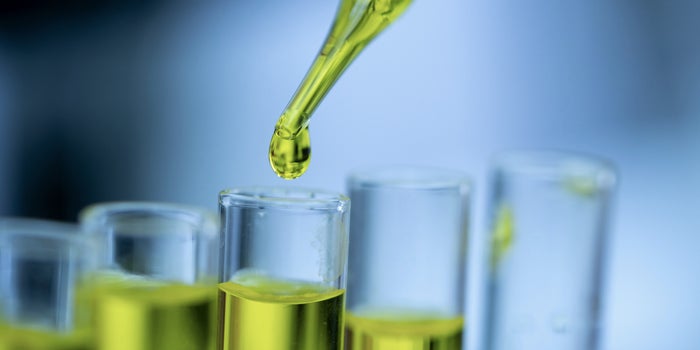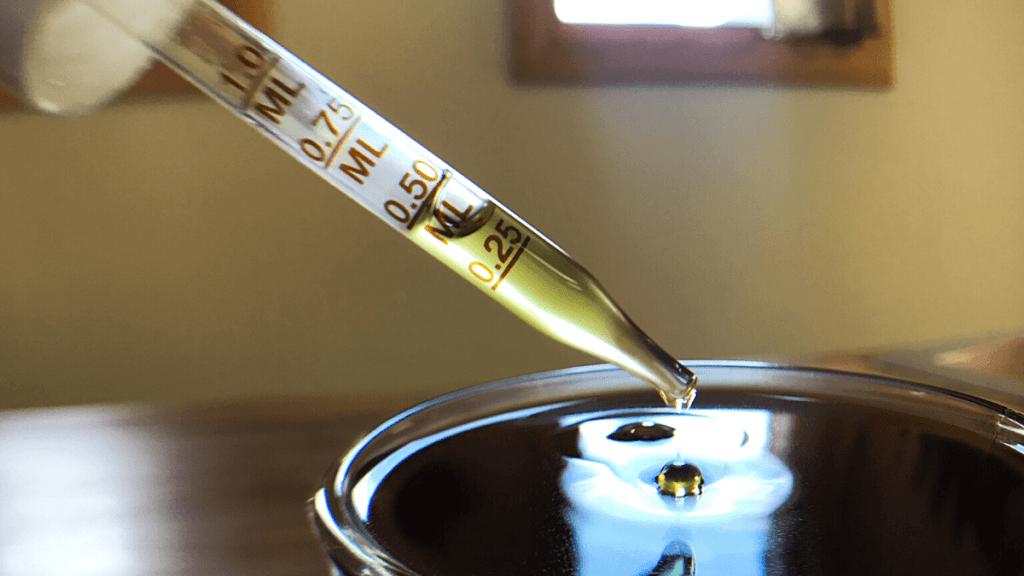You are here
Home 🌿 Cannabis Technology News 🌿 Broad Spectrum CBD: Comparing Broad Spectrum & Full Spectrum CBD 🌿Broad Spectrum CBD: Comparing Broad Spectrum & Full Spectrum CBD

Buying CBD products can be confusing to say the least. One thing that often perplexes CBD consumers is the difference between broad spectrum and full spectrum CBD.
With thousands of CBD products on the market, different brands are struggling to stand out. One major difference between CBD oil tinctures is whether they contain broad spectrum or full-spectrum CBD. It doesn’t help that products are also frequently mislabeled, too.
In brief, the hemp plants has hundreds of natural chemicals in it, including the “cannabinoids” that cause its beneficial effects. The most well known cannabinoids are CBD, the popular supplement, and THC, which is the main “active” ingredient in psychoactive cannabis (a.k.a. “marijuana”). But many other cannabinoids exist.
Both broad spectrum and full spectrum CBD products contain a variety of these natural cannabinoids, but differ in one key ingredient. While neither type of CBD will make you “feel high,” full spectrum CBD has tiny amounts of THC in it while broad spectrum doesn’t have any at all.
But there’s a lot more to learn, so read on to understand more about the different types of CBD oil and why it could matter to you.
What is full spectrum CBD?
We previously published an article touching on “Full Spectrum vs. Isolates” that gave a good overall definition of full spectrum:
“Full Spectrum CBD or hemp oil generally refers to the products that not only contain CBD, but contain the other plant molecules as well.”
Full Spectrum CBD refers to products that not only contain CBD, but contain the other plant molecules as well.
For the purpose of this article, we’re going to stick with this idea. Full spectrum CBD oil contains all of the natural occurring primary and secondary phytocannabinoids, terpenes, flavonoids, and phytonutrients of hemp, but without other fats, waxes, and lipids that do not offer medicinal benefits.
These compounds have been shown to have healing properties and a positive effect on the body. Both industrial hemp and “marijuana” contain the natural occurring compounds mentioned above, including primary and secondary cannabinoids. CBD tends to be more dominant in hemp, and THC is more dominant in psychoactive cannabis. It’s important to note, different cannabis or hemp strains will have different levels and profiles of the secondary phytocannabinoids and terpenes.
If a product has only CBD in it, and none of these other compounds, it’s a CBD isolate product. That’s just what it sounds like: CBD isolated from all other hemp compounds.
What is broad spectrum CBD?
CBD extracts that do not contain THC, or its acidic form tetrahydrocannabinolic acid (THCA) are not full spectrum, but rather, they are broad-spectrum oils.
Broad spectrum contains all the same natural compounds as full spectrum, minus THC.
A broad-spectrum oil contains all the same compounds as a full spectrum oil minus the THC. These oils go through the same extraction processes used to make full spectrum, but then go through an additional step. Broad spectrum extracts go through a chromatography machine to remove the THC.
By law, legal industrial hemp or CBD oil products can contain at most 0.3% THC. That’s a tiny amount compared to the cannabis products people take to get high. However, some people still want to avoid these small amounts of THC, which is why broad spectrum products can be appealing.
It is also a good alternative between CBD isolates and true full spectrum oils. While THC offers its own set of healing properties and probably acts as a binding agent with other cannabinoids, its presence is not a necessity in order to get benefits from a CBD extract.
Spectrum matters because of the ‘entourage effect’
Many experts believe that all of these natural compounds provide greater benefits working together synergistically. This synergy is called the “entourage effect.”
Experts believe different natural hemp compounds work together to create the ‘entourage effect.’
S. Ben-Shabat and the “godfather of cannabis research” Ralph Mechoulam first introduced the entourage effect in 1998. The idea didn’t really take hold until 2011, when Dr. Ethan Russo published the paper “Taming THC: Potential Cannabis Synergy and Phytocannabinoid-Terpenoid Entourage Effects.”
From this, it was widely assumed that synergistic benefits are better and full spectrum was the best choice. This is why so many CBD products are labeled as ‘full spectrum’ … even sometimes when they are really broad spectrum CBD.
Remember, a true full spectrum product must have all of the plants naturally occurring compounds, including THC, all secondary cannabinoids, terpenes, flavonoids, etc! Broad spectrum CBD is less well defined, but contains CBD along with a range of these additional compounds.
Of course, research is still ongoing. With so many different cannabinoids to choose from, effects vary widely and can be tailored to suit an individual’s needs.
Buyer beware: CBD products frequently mislabeled
If we had to give inexperienced CBD consumers one piece of advice, it would have to be ‘buyer beware’ when shopping for cannabinoid products. In 2017, Science Daily recently published the results of a study by the University of Pennsylvania School of Medicine that found “nearly 70% of cannabidiol product sold online are either over or under labeled.” Since CBD is still unregulated, the problem continues to this day.
At Ministry of Hemp, we’re seeing the problem of mislabeled products happen more and more. A CBD company sends us a product in hopes of getting our unbiased review of said product. We run lab tests on the CBD extract only to learn that what they show on the label wasn’t what was actually in the extract.
The claim we get most often is of a CBD product labeled “full spectrum,” when in fact, it is not. This can happen for a number of reasons. For example, more people may be aware of the term “full spectrum,” so a brand decides to fudge a little for marketing purposes.
While this isn’t the worst thing in the industry (those would be CBD scams or completely fake CBD products) we still think it’s important to push for accurate labeling.
Should you take full spectrum or broad spectrum CBD oil?
If drug testing is in your future or if you just don’t want to consume even tiny amounts of THC, broad-spectrum oil might be your best choice.
In theory, you can consume a cannabinoid product that contains the government allowed 0.3% or less of THC and have no problem passing a drug test. However, this isn’t always the case. If your livelihood depends on it, you should consider switching to broad spectrum CBD. When in doubt, check with a supervisor or your HR department. Some active duty U.S. military personnel are currently banned from using CBD at all, or even hemp hair products.

Unless you’re worried about a drug test, choosing between broad spectrum and full spectrum CBD mostly comes down to personal preference.
Other than that, it’s really a personal preference. There are even those who claim the entourage effect is a fallacy. Writing in Scientific American, Margaret Haney, a neurobiologist at Columbia University, cautioned, “the lay public has really taken on the notion of the entourage effect, but there’s not a lot of data.”
Of course this is one person’s opinion. There are many scientists who will disagree with her statement. But the cannabinoid marketplace is so new and the research is still forthcoming. So maybe the average consumer shouldn’t get too hung up on full spectrum vs. broad-spectrum CBD, or the entourage effect. What’s most important should be finding a CBD product that works. For some a simple CBD isolate may work just fine, while others may benefit more from a full spectrum hemp extract that contains trace amounts of THC.
Making better CBD buying choices
We hope this article shed some light on the difference between full spectrum and broad-spectrum extracts.
With so many CBD products mislabeled it’s important to spend some time and research a few CBD companies, and before settling in a particular brand. Remember, what works for one person may not work for another. So shop around and try a few different brands to determine which suits you best.
420 Intel is Your Source for Marijuana News
420 Intel Canada is your leading news source for the Canadian cannabis industry. Get the latest updates on Canadian cannabis stocks and developments on how Canada continues to be a major player in the worldwide recreational and medical cannabis industry.
420 Intel Canada is the Canadian Industry news outlet that will keep you updated on how these Canadian developments in recreational and medical marijuana will impact the country and the world. Our commitment is to bring you the most important cannabis news stories from across Canada every day of the week.
Marijuana industry news is a constant endeavor with new developments each day. For marijuana news across the True North, 420 Intel Canada promises to bring you quality, Canadian, cannabis industry news.
You can get 420 Intel news delivered directly to your inbox by signing up for our daily marijuana news, ensuring you’re always kept up to date on the ever-changing cannabis industry. To stay even better informed about marijuana legalization news follow us on Twitter, Facebook and LinkedIn.




